Top 10 Cloud Services Providers
Want to know the top 10 cloud computing services providers?
Read on!
“I don’t need a hard disk in my computer if I can get to the server faster… carrying around these non-connected computers is byzantine in comparison” – Steve Jobs
Despite the recent buzz in the industry regarding VR and AI, it's my contention that it is cloud computing that truly has the biggest growth potential of any computer-based technology.
Not only that, I believe that although being a concept that dates back to the Remote Job Entry or RJE systems of the 1970s, we are still yet to even scratch the surface so far as unlocking its true potential.
What has caused this slow development of such an invaluable tool of technology? Well, the answer is a number of complex factors, many of which are still yet to be resolved and are the reason the cloud has so far to go.
Some of the biggest reasons include; businesses that still fail to see the full potential of integrating the cloud into their IT solutions, and the cloud services providers themselves, who still seem unable to offer full compatibility of their platform with other cloud services and applications.
Cloud technology is now integrated into our phones, web browsers and a whole wealth of systems we rely on, in actuality, 100% of businesses and most individuals are now dependent on the cloud in some way or another.
In this article, I am going to outline why the cloud is a tool that none of us can do without, before going on to give a more detailed analysis of what the cloud is and how it can be used. Afterwards, I will detail the best cloud services providers and analyze their pros and cons, before summing up with a conclusion.
Why are Cloud Services so Indespensible?

“Cloud computing is often far more secure than traditional computing because companies like Google and Amazon can attract and retain cyber-security personnel of a higher quality than many governmental agencies” – Vivek Kundra (former federal CIO of the United States)
Though it might not be welcome news to many small to medium-sized IT service providers, whose livelihoods are under threat, Vivek Kundra’s assertion that larger and more qualified teams of security experts are more adept at handling the sophisticated security challenges that we now face is an extremely important one.
The security flaw that allowed the recent WannaCry program to hold companies and individuals data to ransom highlights the fundamental importance of large scale security systems and data backup facilities.
Interestingly, according to a recent article published by the BBC, the real target WannaCry's successor, the Peyta malware program, was not money, but rather the data itself. The article quotes several security experts as stating that the widespread deletion of personal data was the real goal, speculating that "the goal of the ransomware aspect of the program was to generate media interest.”
Since the WannaCry program relied on lapse of security of an unsupported system, which is still being used on roughly 7% of the world’s computers, including major systems such as the UK's National Health Service, could it be fair to say that data security is really better off in the hands of cloud services providers?

Get a complimentary discovery call and a free ballpark estimate for your project
Trusted by 100x of startups and companies like
Critics of this viewpoint will no doubt be quick to point out that this malware program was able to exploit the security flaws of a single system, Microsoft’s Windows XP program, which demonstrates that single systems, despite their complexity, are also flawed.
Though the possibility of a large scale data breach is not deniable, should one happen to our cloud provider, it is extremely unlikely, due to the vast backup data networks, that our data would be irretrievable.
While in contrast, the WannaCry malware program shows the extreme level of vulnerability the average home or office system has.
In The World of Computing, Resources Are Power

“Because of the nature of Moore's law, anything that an extremely clever graphics programmer can do at one point can be replicated by a merely competent programmer some number of years later”. - John Carmack, renowned programmer, and Oculus executive.
The simple fact of technology is that as it develops, it inevitably becomes increasingly complex. Take, for example, Facebook, the first version of which was written by Mark Zuckerberg in less than a month. Comparing this first version with the current one, only goes to highlight how the complexity of technology multiplies in a short space of time.
My personal assertion is that there is no way Mr. Zuckerberg would be able to succeed in producing a competitive social media platform or anything equivalent if he was working out of his Harvard dorm today, for the same reason the Wright brothers, were they still alive, could not compete with Boeing.
Increasingly, it now requires teams of programmers and developers to develop such start-ups and to make them succeed.
The huge resources required to even set up the most basic cloud system have always meant that in effect, providing a competitive cloud service has, for the most part, been limited to established companies that have large amounts of cash on hand to invest.
Setting up and maintaining the security systems alone is an expense that can run into the tens of millions of dollars, and if not done properly, could result in a massive data breach or failure that has customers fleeing in droves.
This has meant that today the industry is dominated by several big names, which include Microsoft, Amazon, IBM, Apple, and Google. There are lots of smaller cloud services providers, though these are the more specialized services, as in the example of Dropbox and Box, which are data storage solutions.
The Most Common Uses of Cloud
“Cloud computing is about how you do computing and not where you do computing” – Paul Maritz
Though the cloud was initially designed to allow remote access to data and its secure storage, the ever-expanding uses of the cloud are the backbone of its recent mass acceptance and will certainly be its fuel for growth.
Being able to securely access and store data anywhere in the world, which can then be accessed by any authorized person throughout the globe, has enormous benefits to companies and individuals alike.
While the complete loss of data for a company could be severe enough to put it out of business, the loss of irreplaceable data such as holiday pictures, for example, is equally as traumatic for individuals. The chance of such a failure on an isolated and perhaps unsuited server system is infinitely greater than with a sophisticated resource-rich platform like the cloud.
Microsoft’s successful marriage of their cloud system with their flagship Office program demonstrates the potential of these new areas of growth perfectly.
And they are by no means in isolation, SAP, Oracle, and many others are now also running applications in the cloud, allowing them access to a growing base of customers who are attracted to the benefits of these new tools.
Again, it is important to note that these applications are safer than isolated computers and networks because any necessary security updates to these programs would be immediately applied to the cloud platform, while their extensive service backup solutions mean that the likelihood of total data loss is nearly zero.
Types of Cloud - Service models
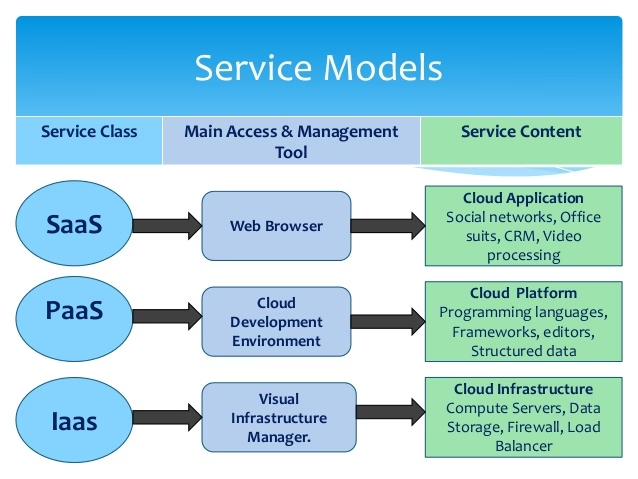
Infrastructure as a service (IaaS)
Iaas is a pay-per-use system that allows subscribers access to remote computer infrastructure, which in effect allows them to scale up the size of their own system by using this powerful virtual infrastructure.
This infrastructure includes servers, storage, and advanced security protection, all of which make IaaS an invaluable resource to businesses and individuals alike.
Platform as a service (PaaS)
PaaS has been heralded as a god send for application developers who can use it to develop websites and applications and deploy them all on the cloud.
The system is very similar to IaaS but also includes development business intelligence (BI) tools, middleware, data management tools and other essential aids to allow for application development and deployment.
Access to such technology, even by the smallest companies, allows teams of all sizes to develop services and new revenue streams that would be out of bounds ordinarily, making it an indispensable tool for companies of all shapes and sizes.
Software as a service (SaaS)
Saas is an emerging heavyweight in cloud computing. It allows users to utilize cloud-based applications over the internet. Microsoft Office 365 is the most obvious example of a Saas system, integrating all the features of the Office package along with email, calendars, and other such tools, all under one umbrella.
Not only does it improve the user's experience by offering a high level of convenience and anytime/anywhere access, but it also helps companies vastly reduce their upfront costs by removing the need for expensive servers and data backup solutions.
Why picking the right cloud services provider really does matter?
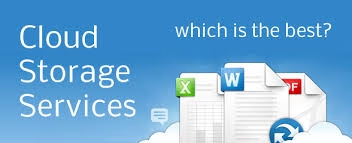
Since cloud services are now much more complex than just a simple data storage solution, the services, tools, and performance they offer do differ quite considerably.
These variations can be anything from all important data upload/download speeds to the suitability of their cloud-based programs for certain tasks, all of which have an enormous impact on the users.
Unsurprisingly, businesses are universally seeking the cloud provider with the best performance, efficiency and flexibility, and demanding that they offer this high service level across a wide range of integrated cloud platforms and development solutions.
Many companies are adopting the approach of using multiple cloud services from different cloud service providers in order to give them the flexibility and coverage they need.
The downside of this approach is that cloud services providers are nowhere near to overcoming compatibility issues which are often havoc to overcome.
As a consequence, both companies and individuals are advised to spend a considerable amount of time examining the full scope of their needs before selecting a cloud service provider. Only when these needs are known can the focus be switched to finding the best cloud provider for the job.
The sheer number of services that the larger cloud platforms have to offer is enormous. Keep in mind that any service is only as good as it works for you, so if you are reading this trying to find the top cloud service, then be sure to do further research to make sure that the one you choose is the most suitable for your requirements.
There are 3 main cloud services currently that are public cloud, private cloud, and hybrid cloud. I will examine the public cloud in more detail because as I see it, this is it the main area of growth, so far as cloud systems are concerned.
Public Cloud

This model is one of the fastest-growing and most popular markets within the cloud sector. Since its emergence in mid-2006, public cloud has taken the world by storm by allowing us to move our work and applications fully onto the cloud.
Google was one of the first companies to realize the potential of the public cloud, investing heavily in it and developing the Chromebook, a laptop that relies on the cloud for its programs, as well as data storage.
Amazon (AWS), Google, Microsoft, and IBM are all clear front-runners in the battle for global public cloud leadership.
Top Cloud Services Providers Reviewed
Amazon Web Services (AWS)
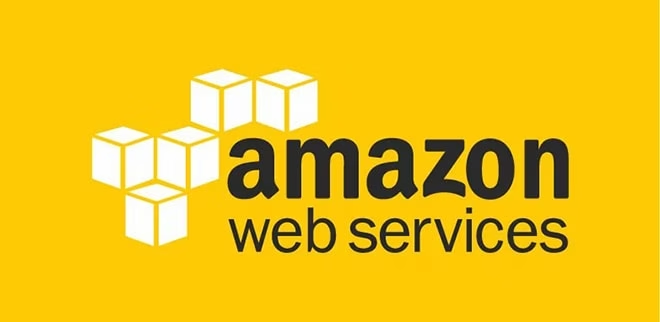
Amazon Web Services (AWS) is the giant of public cloud computing. The company was quick to spot the enormous potential of the cloud as a whole, and so invested heavily in developing an extensive infrastructure in order to offer the best and most reliable service possible.
Today, the company offers an extensive range of IaaS and PaaS services, including its Elastic Compute Cloud (EC2), Elastic Beanstalk, Elastic Block Store (EBS), Simple Storage Service (S3), Glacier storage, DynamoDB NoSQL database and Relational Database Service (RDS).
The fact that it offers extremely powerful tools and services for development, networking, data processing, and management that has cemented AWS's reputation as the go-to cloud service that gives seamless integration, along with the best tools and services available today.
For businesses, AWS offers high resource scalability at a fraction of the cost that it would require otherwise. Not only that, many businesses feel that due to Amazon’s extensive focus on remaining ahead of the game, they are actually investing in a system that will only get better with time, unlike a traditional in-house server system, which quickly becomes outdated.
Hire expert developers for your next project
1,200 top developers
us since 2016
The main drawback with AWS is that it is not open-source, something that has frustrated many developers along with the restricted control that Amazon’s internal management obviously creates.
Provided that this is not a big concern, then AWS offers the perfect marriage of flexibility, resources, tools, security, and low costs that make its cloud platform extremely hard to beat.
Google Cloud Platform

Google’s Cloud Platform competes with AWS in every main area of the public cloud. Thanks to the global domination of its Android system, the company has been able to covertly introduce its users to its cloud system through their phones and tablets.
The most basic function that all of us now use, is to allow us all to sync our phones with other devices including tablets and our PCs when using their Chrome web browser.
Their platform offers some really well developed and reliable tools, including their Compute Engine, App Engine, Container Engine, Cloud Storage and BigQuery.
It is too early to tell, but it seems certain that as Google integrates their cloud resources with their Android system, certain parts of their cloud platform are set to explode in terms of market share.
With reliable and fast global internet, the huge issue of smartphone storage space will completely disappear thanks to the remote storage potential of Google Drive, for example.
Unfortunately for my analysis, Google does not release much in the way of useful information regarding its number of cloud users or revenue, so the industry has to base it on best-guess estimates.
Most analysts seem to agree that use of Google’s Cloud Platform is surging, something that seems inevitable when you look at just how much Google is investing in cloud technology.
Overall, Google’s Cloud Platform is certainly a huge rival for AWS and the other big players. It is an excellent platform that offers really good tools and services, many of which, in my opinion, were once inferior to those used by AWS, but are now on a par or even better in many respects.
Interesting to note is that Google now offers many services at prices lower than Amazon, proving that though they might have been lagging behind, to begin with, they are now quickly catching up.
Microsoft Azure
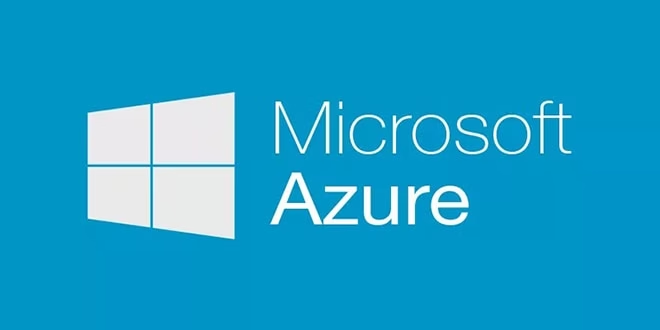
Microsoft also offers the full spectrum of IaaS, PaaS, and SaaS services to its customers. The company was caught napping when it came to its core Windows operating system and its migration to the smartphone, so it is certainly good news from their investor’s standpoint that they have managed to carve out a good percentage of the cloud market.
Not only that, they have managed to successfully integrate their other flagship product, the Office suite onto the cloud, something that will guarantee a healthy revenue stream in the future.
Of the several friends I have who use Microsoft’s cloud, all of them joined it because of their love of the Office suite. That said, it is worth noting that Microsoft’s strongest card has been its Windows operating system which has allowed them to push its cloud services on its army of users.
The well-received Windows 10, was full of interesting ways to get us to expand into Microsoft’s cloud services, including the highly successful OneDrive cloud storage platform. Though the number of PC users is in decline, Microsoft is rightly seeking to leverage what power it has in order to get its customers using its cloud-based services and products while it can.
Another important product of its existing Windows operating system is the relationships that it has fostered with a huge number of companies like HPE, Adobe, SAP, and Cisco, all of whom now are reviving this relationship with their own moves into cloud-based systems.
So far as the numbers go, Microsoft’s cloud business is on a solid growth trajectory, in Q4 of 2016, Microsoft reported that its revenues increased 5% to surpass $6.7 billion, something that would put it in the number 2 spot behind AWS.
Though widely used by the U.S Government and a number of big companies, the main criticism of Microsoft Azure is the cost. It trails all the main cloud services in terms of price, which are higher than all the others and are reportedly causing it to suffer when it comes to uptake by small and medium-sized businesses.
IBM Cloud
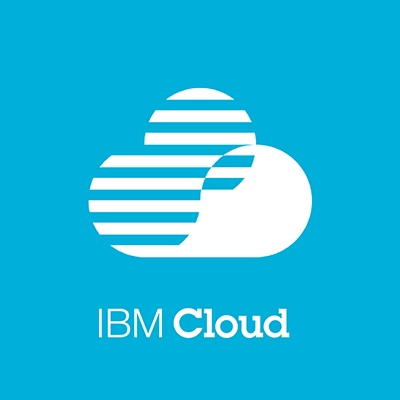
IBM has always chased the big business market and to be honest, by most indications they seemed to have followed the same approach with their cloud platform.
The company is particularly focused on PaaS and SaaS cloud systems. Its Bluemix development tool has been well-received by the software development community, while its range of powerful cloud SaaS management tools and services is also scoring some big successes.
The IBM Cloud has a few unique offerings that its competitors are not currently able to match. For example, it is the only major cloud vendor that emphasizes its bare metal servers, which can be very attractive for organizations that have particular performance or security requirements.
IBM also gives organizations a lot of flexibility and customization options, on a scale that the other big three don’t. On the downside, it can take up to several hours to configure and deploy a custom server, which has caused many customers to finally turn their back on IBM.
IBM is another company that is cashing in on its existing business, offering seamless integration with existing IBM architectures such as Power8servers, something which is a strong incentive for its customers to use their cloud service.
Another strong feature of IBM’s cloud services is that its tools and security features work well over multi-cloud environments. This has been backed up by a high level of IT support, something that has frustrated users of rival cloud systems such as Microsoft.
So what’s holding IBM back? Well, it looks like a combination of their approach and the fairly high costs of their services.
In combination, they limit IBM’s appeal to the medium to large-sized business market, denying it the chance to reach the mass personal consumer market that I believe is going to be incredibly lucrative in years to come.
Oracle Cloud

Oracle offers a really respectable range of IaaS, PaaS and Saas services. Particularly notable is their RightNow suite of applications, which are excellent tools that are designed to facilitate web, social, and contact center customer services while being deliverable across multiple channels.
This suite includes access to live chat features, email support, case management, virtual assistants, and much more.
The company’s Ravello tools are really great for easily migrating virtual machines to the cloud, while its Paas services for data management, business analytics, and app development have all attracted a growing number of users who prefer Oracle’s approach.
Oracle has positioned itself to take advantage of the personal and small business market, so pay-per-use costs are relatively low, while also offering a reasonably good level of customer service.
The main drawback of this is that larger businesses simply won’t find them an option when it comes to their own needs. While it is true that Oracle might be a smaller fish in the pond, it still punches far above its weight, and importantly it is growing in size fast.
CloudStigma

CloudStigma is the first of the specialized cloud services on this list. A relatively small company, it still manages a respectable 10 data centers around the world, allowing it to provide fast cloud services to Europe, North America, and Asia.
The company focuses on managed cloud hosting services for small to medium-sized developers in order to concentrate its limited resources to make the biggest impact.
Obviously, due to its smaller size, it is unable to offer the huge array of Iaas, Paas, and Saas services that the top 4 providers on this list do, a fact which is also true for all the remaining cloud services providers on this list.
This is a cloud service provider that offers the personal touch; particularly notable is how much its customers value the exceptionally high levels of customer care they receive.
Security too is well managed and extremely reliable. With quite possibly the most appealing website of all the cloud services providers, they pride themselves on offering their customers the best level of flexibility to suit whatever needs they might have.
CloudStigma offers excellent performance at extremely competitive prices. Their most basic package begins at $14 per month for a single-core and 50 GB of SSD storage with 5TB of data transfer, a price that is well below what the likes of Microsoft offer.
For larger hosting requirements they offer a range of packages that offer some serious cloud power, like the 20 core, 640 GB SSD with 5 TB of data transfer, which is currently available for $677 per month.
All of these offers are available on a 7-day trial which is a very nice bonus for those people wanting to make sure that they are getting what they need before they have to pay for it.
GoDaddy

GoDaddy is a much-loved cloud platform for smaller businesses that require low-cost access to basic cloud services, web hosting, and domains. They are really an IaaS-focused cloud system with a specific specialty in web development.
Hire expert developers for your next project
Thanks to its reliable uptime, excellent tools, and low costs, GoDaddy is a popular choice for individuals and small businesses that are looking to bring down costs while still having access to some really powerful web development tools.
A major strength of their website builder is that it comes in three versions, GoCentral, Online Store, and WordPress. This means that you can use the different versions to develop your site on any of these three platforms.
Given that 22% of new domains in the US are run with WordPress, it shows you just how convenient this feature is, especially as it doesn’t require you to learn any code!
VMWare

VMWare vCenter Server is a cloud system that allows you to manage the virtual infrastructure by centralizing it all under one roof.
Designed to aid businesses of all sizes to improve system integration by enabling a complete overview and control of what is going on, VMware is a powerful tool when it comes to improving the efficiency and effectiveness of your company.
This cloud platform is without question the preferred choice of many developers because of its overall approach and high levels of support.
This model clearly works wonders, so much so that it really is hard to find customers who report having a negative experience with them, which might be something that some of the top cloud service providers on this list could learn from.
Another really nice and important feature of VMware's approach is the fact that it is available in 20 different languages, making it a truly global cloud system that is available to all.
For me, this also highlights that this is a small company that is thinking big. Provided they are careful not to let their customer experience suffer, the mass availability of this cloud platform is definitely a huge plus for lots of businesses out there.
DigitalOcean

DigitalOcean not only offers an excellent platform for web developers but also encourages them to be an active user community to help each other out.
The feedback from this community helps DigitalOcean improve its tools and features further in a feedback/development loop that allows them to achieve the best results with its limited resources.
Two important areas that they have concentrated on are giving developers exceptional cloud performance and making their entire platform as simple to use as possible.
DigitalOcean offers tutorials and step-by-step guides for every stage of the process, allowing new users to get up to speed in no time so that they can get into the business of developing and managing their websites and applications.
Sadly, DigitalOcean does need to address the issue of their customer support, which is not only frustrating users but is also damaging their otherwise strong brand image.
Hyve

Hyve aspires to provide 100% reliable cloud services with a personal touch. They provide a range of web hosting services that include public, private, and hybrid cloud hosting.
The core of their model is to work side by side with their customers to develop mission-critical solutions for all types and sizes of businesses.
The key to this is their focus on offering their clients performance reliability, scalability, and top-level security.
This approach seems to be paying off as they have netted some big clients such as the United Kindom’s National Health Service and Lionsgate Films. Only time will tell how far this approach can take them.
Conclusion: Which is the best cloud computing service provider?
It is still early days, but I think Amazon’s huge investment in cloud infrastructure, coupled with offering competitive pricing, has given AWS an enormous advantage early on in the game, making it a leading cloud service provider.
This lead is really important, particularly when dealing with businesses that are always reluctant to move their infrastructure to new places. This resistance can be clearly seen through those mass numbers of users who chose to follow their existing operating systems or server when they first moved to the cloud.
Also in AWS’s favor is the enormous resources at their disposal, allowing them to develop their services on a wide front all at the same time, whereas as we have seen, smaller companies only have the resources to focus on specific areas of the market.
Overall, I would definitely say that at this point in time, AWS is the best all-rounder cloud platform on the market.
Amazon’s position as top dog is by no means secure, however. Things move very quickly in the world of technology and there are a number of things in my opinion that could quickly see the hierarchy change places.
In my view, a particular danger comes from Google. Not only does Google have the resources to compete for head to head with Amazon and Microsoft, but they have two trump cards that if utilized properly, could easily see them wipe out Amazon’s lead to dominate the cloud market.
Google has access to huge amounts of personal data relating to our search preferences, emails, and daily lives that they have collected through our phones and the Chrome browser.
The fact that we carry our phones everywhere and use them for everything means the services they provide are invaluable. I gave the example of data storage, which is increasingly important to our daily lives as one existing area that will hugely benefit from cloud architecture in the future.
The vast majority of us are likely to simply sign up for the easiest option, which for 80% of the world, is Android’s parent Google and its cloud service.
Google’s development of its Machine learning or API is going to be the driver of the huge leap in cloud services, a leap that is going to revolutionize every part of your life. Imagine your entire home being remotely managed by a cloud-based system, for example.
Once your home is effectively a ‘smart home’, then a sophisticated cloud-based control system could manage everything from making sure the temperature is just right when you arrive home to stocking the refrigerator based on your collected past behavior patterns.
The possibilities are endless, and the key here is information, something that Google holds and Amazon will certainly wish it did in the not-too-distant future.
For now, the answer to which is the best cloud computing provider really depends on what you need it to do. Large providers have the resources to provide the best overall platforms, but generally, lack customer support with the ever-important personal touch.
Small-scale cloud services providers make up for their disadvantage by targeting their niche market and making sure they give them exactly what they need. The obvious drawback is that they can’t provide larger clients with the full diversity of tools and functions that they need to retain their services completely.
In the future, these smaller companies are also much more likely to have to depend on the larger cloud services providers for AI and data processing functions, which are simply too expensive to develop in-house.
The simple fact is that there is no universal solution that fits all cloud services providers; they all have their pros and cons, so which one you choose should only be a matter of what works best for you. That said, if you are looking for the best overall cloud platform, then Amazon's AWS is it.
If you are looking for a competent team of software developers to assist you in implementing cloud infrastructure services from major cloud service providers or building a cloud-based software solution, DevTeam.Space can help you with its field-expert software developers community.
You simply write to us your initial software project specifications, and one of our account managers will get in touch with you for further details on how our cloud developers can help you.
Frequently Asked Questions on Cloud Services Providers
Microsoft, Amazon AWS, IBM, Google, Salesforce, SAP, and others are among the top cloud service providers.
Infrastructure as a Service (IaaS), Platform as a Service (PaaS), and Software as a Service (SaaS).
Platform as a Service or PaaS is a cloud-based service including cloud servers, networking, storage, etc., that offers users the chance to develop software as cloud solutions.


